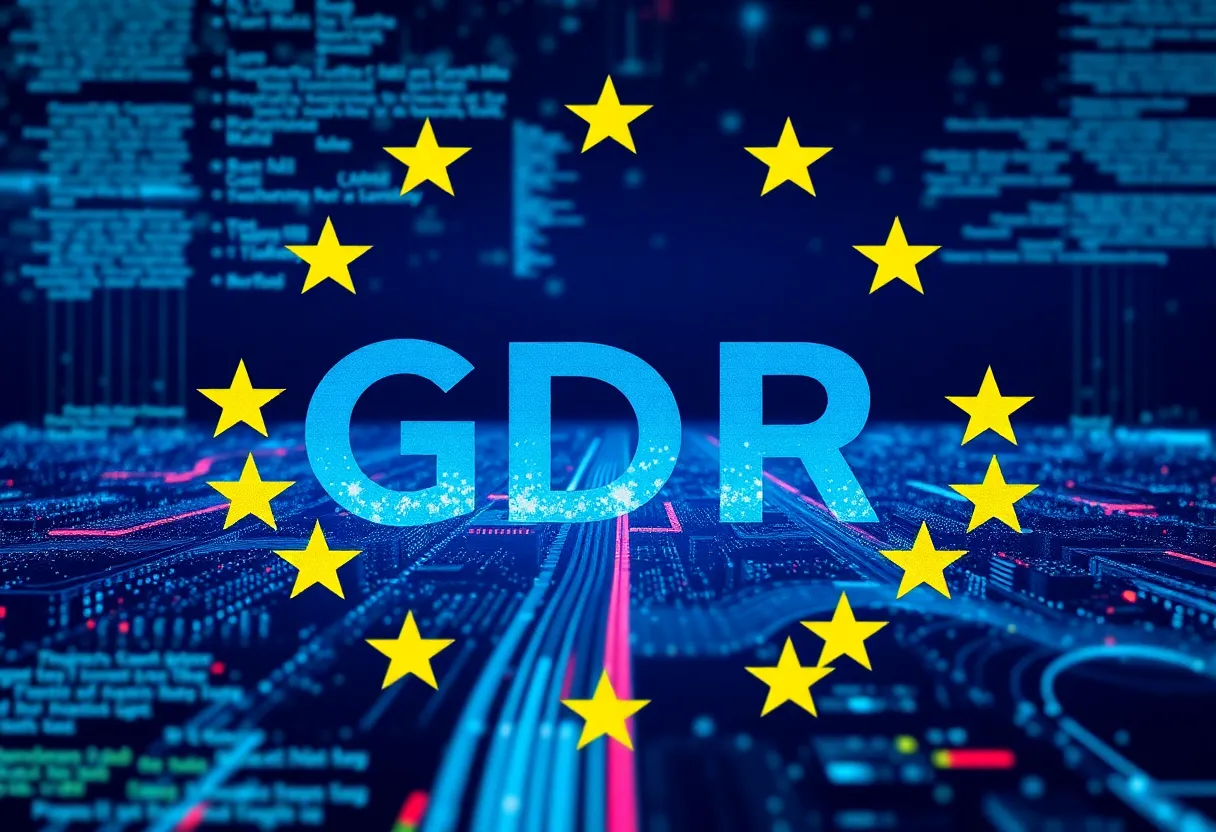News Summary
Several major U.S. media websites, including the Los Angeles Times and Chicago Tribune, became inaccessible to European users following the implementation of the General Data Protection Regulation (GDPR). The regulation aims to enhance user privacy and data protection in the EU. Many companies are adapting to comply with the new laws, causing some sites to restrict European access to avoid severe penalties. While some outlets remain accessible, the broader trend reflects a significant shift in how U.S. media firms are addressing global digital strategies amidst evolving regulations.
Los Angeles, CA – Several major U.S. media websites, including popular platforms like the Los Angeles Times, Chicago Tribune, and New York Daily News, became inaccessible to European users on Friday following the implementation of the General Data Protection Regulation (GDPR). This regulation is designed to enhance user privacy and data protection within the European Union (EU) and the European Economic Area (EEA).
The affected websites displayed messages stating that they are “currently unavailable in most European countries,” highlighting the immediate impact of GDPR on their accessibility. These actions come as companies scramble to comply with the new regulations, which require explicit consent from users before processing their personal data. The enforcement of GDPR restricts access to U.S. media sites for users in Europe.
Tronc, the publisher that oversees several of the blocked sites, acknowledged the situation, explaining that they are actively working on the issue. Tronc expressed intentions to explore options that would enable them to provide their full range of digital offerings to the EU market while complying with the new laws. Similarly, Lee Enterprises, which owns multiple daily newspapers, confirmed their websites were also unavailable in Europe due to GDPR compliance issues. The message from Lee Enterprises indicated awareness of the restrictions in place for users in the EEA, including the EU.
Moreover, websites operated by A+E Networks also faced similar restrictions in Europe, indicating a wider trend in the U.S. media landscape as firms respond to the stringent requirements of the GDPR. Visitors to these sites also received notices stating that “This content is not available in your area,” reflecting a growing trend of U.S. companies reevaluating their global digital strategies in light of new European regulations.
The GDPR, which became a legal framework on Friday, fundamentally changes how organizations within and outside the EU handle personal data. Under this regulation, individuals can request access to their data and demand that it be deleted if necessary. The scope of the GDPR extends beyond just data protection; it places the onus on companies to demonstrate compliance, leading many U.S.-based organizations to preemptively cut off access to their services in Europe.
Noncompliance with GDPR can lead to severe penalties, as organizations may face fines of up to 4% of their global annual turnover or €20 million (approximately $23.4 million), whichever is greater. These financial implications underscore the importance of adhering to GDPR requirements, prompting many U.S. media firms to take swift actions to avoid potential legal consequences.
While many U.S. media websites have restricted European access, some outlets, such as notable national publications, have not been affected by these limitations. For instance, major outlets like The Washington Post and The New York Times continue to be accessible in Europe. Conversely, other sites, including TechCrunch, Huffington Post, and Engadget, have taken proactive measures by prompting European users for consent before granting access, indicating a varied response to the GDPR across the U.S. media landscape.
The implementation of GDPR emphasizes the need for companies operating within the digital space to prioritize data protection and user consent, a shift that has immediate consequences for U.S. media outlets targeting international audiences. As the regulatory landscape evolves, businesses will likely continue to adapt their digital strategies to comply with emerging data protection laws, ensuring the protection of user privacy in a rapidly changing environment.
Deeper Dive: News & Info About This Topic
HERE Resources
Additional Resources
- CNBC
- Wikipedia: General Data Protection Regulation
- BBC News
- Google Search: GDPR impact on media
- The Guardian
- Encyclopedia Britannica: General Data Protection Regulation
- Vox
- Google News: GDPR regulations
- Qualys Blog
- The New York Times
Author: STAFF HERE SAVANNAH WRITER
The represents the experienced team at HERESavannah.com, your go-to source for actionable local news and information in Savannah, Chatham County, and beyond. Specializing in "news you can use," we cover essential topics like product reviews for personal and business needs, local business directories, politics, real estate trends, neighborhood insights, and state news affecting the area—with deep expertise drawn from years of dedicated reporting and strong community input, including local press releases and business updates. We deliver top reporting on high-value events such as Savannah Music Festival, St. Patrick's Day Parade, and Savannah Jazz Festival. Our coverage extends to key organizations like the Savannah Area Chamber of Commerce and United Way of the Coastal Empire, plus leading businesses in aerospace, education, and logistics that power the local economy such as Gulfstream Aerospace, Savannah College of Art and Design, and Colonial Group. As part of the broader HERE network, including HEREAtlanta.com and HEREAugusta.com, we provide comprehensive, credible insights into Georgia's dynamic landscape.



